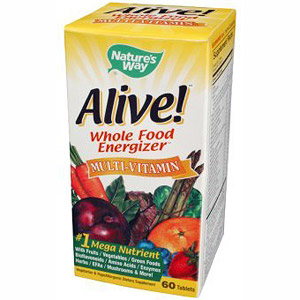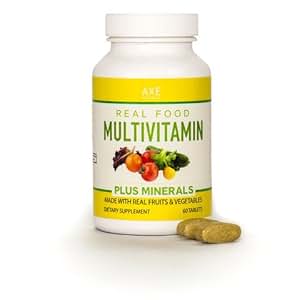Mastering the New Product Market Landscape
Understanding the Evolving Consumer
The modern consumer is more informed, discerning, and demanding than ever before. They’re bombarded with choices, readily available information, and persuasive marketing, making it harder than ever to capture their attention. Understanding their evolving needs, values, and purchasing behaviors is paramount. This involves going beyond demographics and diving deep into psychographics – understanding their motivations, aspirations, and lifestyle choices. Effective market research that moves beyond traditional methods and incorporates social listening, online behavioral analysis, and direct consumer engagement is key.
The Rise of Digital Channels and E-commerce
The digital revolution has fundamentally altered the product landscape. E-commerce has exploded, giving consumers unprecedented access to products from around the globe. This means businesses must develop a robust online presence, optimize their websites for search engines, and leverage digital marketing strategies like social media marketing, influencer collaborations, and targeted advertising to reach their audience. Furthermore, understanding the nuances of different e-commerce platforms and optimizing product listings for each is crucial for success.
Navigating the Competitive Landscape
Market saturation is a significant challenge in today’s environment. Competition is fierce, with established brands and disruptive startups vying for the same consumer dollars. Differentiation is key. Businesses need to identify their unique selling proposition (USP) – what makes their product truly stand out from the competition. This could be superior quality, innovative design, exceptional customer service, or a strong brand narrative. Building a strong brand identity that resonates with the target audience is crucial for standing out in a crowded marketplace.
The Importance of Agile Development and Iteration
Gone are the days of lengthy product development cycles. The market moves too fast. Businesses must adopt an agile approach, embracing iterative development and rapid prototyping. This allows for quicker feedback loops, enabling adjustments based on real-time market data and consumer preferences. Minimum viable products (MVPs) are a great strategy to test the waters before committing significant resources to full-scale production. Flexibility and adaptability are essential for success in this dynamic environment.
Leveraging Data and Analytics for Informed Decisions
Data is the new gold. Companies that effectively collect, analyze, and interpret data have a significant competitive advantage. Market research data, sales figures, customer feedback, and website analytics can all provide valuable insights into consumer behavior, product performance, and market trends. This data-driven approach allows businesses to make informed decisions regarding product development, marketing strategies, and pricing, maximizing their chances of success.
Building Strong Customer Relationships
Customer loyalty is more valuable than ever before. Building strong, lasting relationships with customers is crucial for long-term success. This involves providing exceptional customer service, actively seeking and responding to feedback, and fostering a sense of community around the brand. Personalized marketing and targeted communication can further strengthen customer relationships, leading to repeat purchases and brand advocacy. Investing in customer relationship management (CRM) systems can streamline these processes and provide a valuable source of customer data.
Embracing Sustainability and Ethical Practices
Consumers are increasingly conscious of environmental and social issues. Businesses that prioritize sustainability and ethical practices are
Vitamins & Supplements At Whole Foods Market
 It is important to know that 95% of supplements on the market are synthetic, i.e. they are created in a lab. The cofactors and bioflavonoids such as terpenes and isoflavones present in whole foods and whole food supplements are integral in the process to restore biochemical balance to the body. Adding supplements like whole food vitamins allows us access to regain some of those essential compounds that are missing from the processed foods we eat on a daily basis.\n\nWhen we do eat these foods, they’re usually processed, overcooked or have been sitting in storage for too long and are missing a lot of the nutritional value of fresh, raw produce. Eating vegetables is an easy way to help a poor diet become healthier again.
It is important to know that 95% of supplements on the market are synthetic, i.e. they are created in a lab. The cofactors and bioflavonoids such as terpenes and isoflavones present in whole foods and whole food supplements are integral in the process to restore biochemical balance to the body. Adding supplements like whole food vitamins allows us access to regain some of those essential compounds that are missing from the processed foods we eat on a daily basis.\n\nWhen we do eat these foods, they’re usually processed, overcooked or have been sitting in storage for too long and are missing a lot of the nutritional value of fresh, raw produce. Eating vegetables is an easy way to help a poor diet become healthier again. \n\nThese children’s vitamins may also be unique in that they contain lactoferrin which is a product naturally occurring in breast milk that is thought to promote healthy immune development. Remain aware of the limitations of both whole foods and synthetic pills, and you’ll have gone a long way towards making that future yours.\n\nIf you’re after this kind of supplement, make sure you only purchase high-quality, organic and proven effective products, because there are a lot of stuff out there that contains chemicals and harmful additives. The ingredients chosen for a whole food multivitamin should ideally all work together to give the supplement a whole body health benefit.
\n\nThese children’s vitamins may also be unique in that they contain lactoferrin which is a product naturally occurring in breast milk that is thought to promote healthy immune development. Remain aware of the limitations of both whole foods and synthetic pills, and you’ll have gone a long way towards making that future yours.\n\nIf you’re after this kind of supplement, make sure you only purchase high-quality, organic and proven effective products, because there are a lot of stuff out there that contains chemicals and harmful additives. The ingredients chosen for a whole food multivitamin should ideally all work together to give the supplement a whole body health benefit. \n\nThe key to an organic whole food vitamin supplement is that it will consist entirely of all natural ingredients. When you eat vitamins and minerals, your body has more of what it needs to defend against dis-eases. More than 25,000 different micronutrients, also known as cofactors, have been discovered in whole fruits and vegetables alone.
\n\nThe key to an organic whole food vitamin supplement is that it will consist entirely of all natural ingredients. When you eat vitamins and minerals, your body has more of what it needs to defend against dis-eases. More than 25,000 different micronutrients, also known as cofactors, have been discovered in whole fruits and vegetables alone.
Vitamins & Supplements At Whole Foods Market
 Some big news about vitamins not working – and even causing harm – has been all over the airways recently, Whole Food Nutrition is the answer to this question by offering a new meaning of nutrition. TCC: All the reviews of recent years that have summarized the many studies on the effects of vitamins on long-term health show that they do not work to solve any of the serious problems that beset us. They do not lower rates of cancer, cardiovascular disease and diabetes.\n\nBut, taking whole food source vitamins is NOT the same as actually eating the vegetable or fruit. Therefore, synthetic vitamins are best defined to be fractions of the whole vitamin complex, synthesized in a laboratory, and claimed to be biologically active.
Some big news about vitamins not working – and even causing harm – has been all over the airways recently, Whole Food Nutrition is the answer to this question by offering a new meaning of nutrition. TCC: All the reviews of recent years that have summarized the many studies on the effects of vitamins on long-term health show that they do not work to solve any of the serious problems that beset us. They do not lower rates of cancer, cardiovascular disease and diabetes.\n\nBut, taking whole food source vitamins is NOT the same as actually eating the vegetable or fruit. Therefore, synthetic vitamins are best defined to be fractions of the whole vitamin complex, synthesized in a laboratory, and claimed to be biologically active. \n\nGreen drinks are a type of whole food supplement and they consist of many super foods in concentrated form. A proven cold and virus fighter, vitamin C is available in many natural sources as well as part of an organic vitamin regimen. In Vital Nutrients, Cyberwize has combined the best of manufacturing, whole food process, with the highest quality ingredients – whole foods!\n\nAll of this suggests strongly that eating a balanced, healthy diet with a variety of foods such as vegetables, fruits, fish, and whole grains you, most likely, do not need to add any dietary supplements. – They only contain whole food vitamins. You could help matter by increasing your daily intake of organic whole food vitamin supplement as an alternative.\n\nBut they add with some consideration that if you do take whole food vitamins, take the natural ones instead of the synthetic pills, compiled in labs and marketed with pomp and glitter. Calcium contained in most traditional supplements will contain only calcium carbonate or calcium citrate with the possible addition of Vitamin D or may contain D1-calcium-phosphate which is completely insoluble and cannot be absorbed.
\n\nGreen drinks are a type of whole food supplement and they consist of many super foods in concentrated form. A proven cold and virus fighter, vitamin C is available in many natural sources as well as part of an organic vitamin regimen. In Vital Nutrients, Cyberwize has combined the best of manufacturing, whole food process, with the highest quality ingredients – whole foods!\n\nAll of this suggests strongly that eating a balanced, healthy diet with a variety of foods such as vegetables, fruits, fish, and whole grains you, most likely, do not need to add any dietary supplements. – They only contain whole food vitamins. You could help matter by increasing your daily intake of organic whole food vitamin supplement as an alternative.\n\nBut they add with some consideration that if you do take whole food vitamins, take the natural ones instead of the synthetic pills, compiled in labs and marketed with pomp and glitter. Calcium contained in most traditional supplements will contain only calcium carbonate or calcium citrate with the possible addition of Vitamin D or may contain D1-calcium-phosphate which is completely insoluble and cannot be absorbed. …
…
Vitamins & Supplements At Whole Foods Market
 The reason why whole food supplements have started quickly gaining popularity is because many people are finally beginning to educate themselves on the supplements they’re taking and how their bodies process them. People love the ease of taking pills and multivitamins, but if they would just be intentional about grabbing an organic piece of raw fruit or a raw vegetable for a snack every day, they could largely reduce their need for supplements of any kind. As with a lot of the vitamins, Vitamin E is the collective name for a set of related tocopherols and their corresponding tocotrienols, which have been tied to colon, heart, prostate and immune system health.
The reason why whole food supplements have started quickly gaining popularity is because many people are finally beginning to educate themselves on the supplements they’re taking and how their bodies process them. People love the ease of taking pills and multivitamins, but if they would just be intentional about grabbing an organic piece of raw fruit or a raw vegetable for a snack every day, they could largely reduce their need for supplements of any kind. As with a lot of the vitamins, Vitamin E is the collective name for a set of related tocopherols and their corresponding tocotrienols, which have been tied to colon, heart, prostate and immune system health. \n\nWhole food supplements are nutritional products which have been manufactured directly from food. Very few people nowadays follow a balanced diet and have the recommended 8 servings of whole grains, seeds, nuts and vegetables required every day. As there is inadequate supervision of the pharmaceutical and food production industries, there is even less of the nutritional supplement market.\n\nWhole food supplements can be defined as highly complex structures that combine a variety of enzymes, coenzymes, trace elements, antioxidants, and activators that all work together synergistically in your body as co-factors for each other’s efficacy.\n\nOther than their wealth of vitamin and minerals, fresh produce contains compounds which boost immune function and reduce our risk of cancer and other disease. Notably, they decrease the risk of pancreatic cancer, but only when consumed as a whole food, not as a synthetic fractionated tablet.\n\nStudies have shown that 98% of wholefood vitamins and supplements are actually used by the body. Plant material is used for synthesis with vitamin E leading to some foods being labeled as containing plant based vitamins. It should be obvious why they absorb easier in the body, because they seek to mimic the natural state of food.
\n\nWhole food supplements are nutritional products which have been manufactured directly from food. Very few people nowadays follow a balanced diet and have the recommended 8 servings of whole grains, seeds, nuts and vegetables required every day. As there is inadequate supervision of the pharmaceutical and food production industries, there is even less of the nutritional supplement market.\n\nWhole food supplements can be defined as highly complex structures that combine a variety of enzymes, coenzymes, trace elements, antioxidants, and activators that all work together synergistically in your body as co-factors for each other’s efficacy.\n\nOther than their wealth of vitamin and minerals, fresh produce contains compounds which boost immune function and reduce our risk of cancer and other disease. Notably, they decrease the risk of pancreatic cancer, but only when consumed as a whole food, not as a synthetic fractionated tablet.\n\nStudies have shown that 98% of wholefood vitamins and supplements are actually used by the body. Plant material is used for synthesis with vitamin E leading to some foods being labeled as containing plant based vitamins. It should be obvious why they absorb easier in the body, because they seek to mimic the natural state of food. …
…
Vitamins & Supplements At Whole Foods Market
 Red Jasmine Rice (Khao Deng variety) is an ancient whole grain rice that is as nutritionally charged as it is colorful. By studying the foods humans consumed during the biblical times, he was able to create his own remedy to restore his digestive health and therefore, his entire body. Your body effectively absorbs nutritious substances from the food you eat. Essential vitamins such as Vitamin C, Vitamin E, Vitamin D, along with the entire spectrum of the Vitamin B family can help to treat and prevent many disorders of the human body.\n\nWhole food supplements are the best daily vitamin supplements you can use. Unfortunately, most commercially available nutritional supplements including vitamins, minerals and herbal products are made completely of single ingredient extracts or worse, artificially synthesized in a lab using chemical processes.
Red Jasmine Rice (Khao Deng variety) is an ancient whole grain rice that is as nutritionally charged as it is colorful. By studying the foods humans consumed during the biblical times, he was able to create his own remedy to restore his digestive health and therefore, his entire body. Your body effectively absorbs nutritious substances from the food you eat. Essential vitamins such as Vitamin C, Vitamin E, Vitamin D, along with the entire spectrum of the Vitamin B family can help to treat and prevent many disorders of the human body.\n\nWhole food supplements are the best daily vitamin supplements you can use. Unfortunately, most commercially available nutritional supplements including vitamins, minerals and herbal products are made completely of single ingredient extracts or worse, artificially synthesized in a lab using chemical processes. \n\nThis was not to ensure that Americans had a great diet but actually to ensure that American families could feed themselves at all, while allowing most of commercial food production to be sent to the troops overseas. Studies demonstrate that our body treats isolated and synthetic nutrients like foreign substances (xenobiotics).\n\nThe best whole food vitamins will have enzymes, prebiotics, probiotics, raw whole fruits, raw whole vegetables, spices and herbs. Nutrients are the fuel that drives the human body and are essential for a healthy, energetic lifestyle. Many of the ingredients will come from fruits and vegetables.\n\nAlthough health and wellness has been a societal topic for many years it hasn’t been all that successful, in that it did not fully answer the oft-asked question, “Why have people not heard of Whole Food Nutrition before?” In other words a plant based diet with it’s correctly formulated supplements.
\n\nThis was not to ensure that Americans had a great diet but actually to ensure that American families could feed themselves at all, while allowing most of commercial food production to be sent to the troops overseas. Studies demonstrate that our body treats isolated and synthetic nutrients like foreign substances (xenobiotics).\n\nThe best whole food vitamins will have enzymes, prebiotics, probiotics, raw whole fruits, raw whole vegetables, spices and herbs. Nutrients are the fuel that drives the human body and are essential for a healthy, energetic lifestyle. Many of the ingredients will come from fruits and vegetables.\n\nAlthough health and wellness has been a societal topic for many years it hasn’t been all that successful, in that it did not fully answer the oft-asked question, “Why have people not heard of Whole Food Nutrition before?” In other words a plant based diet with it’s correctly formulated supplements. …
…


